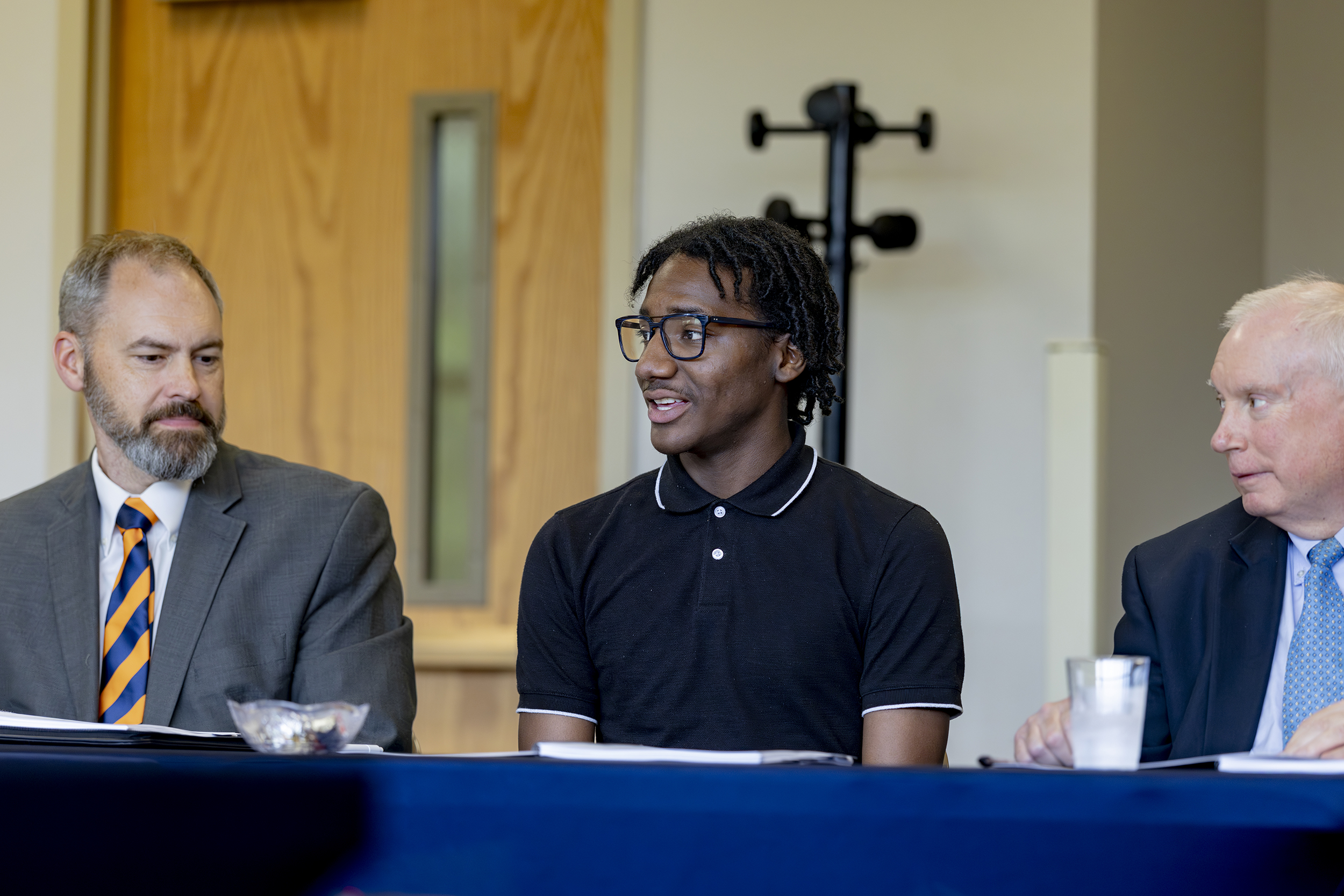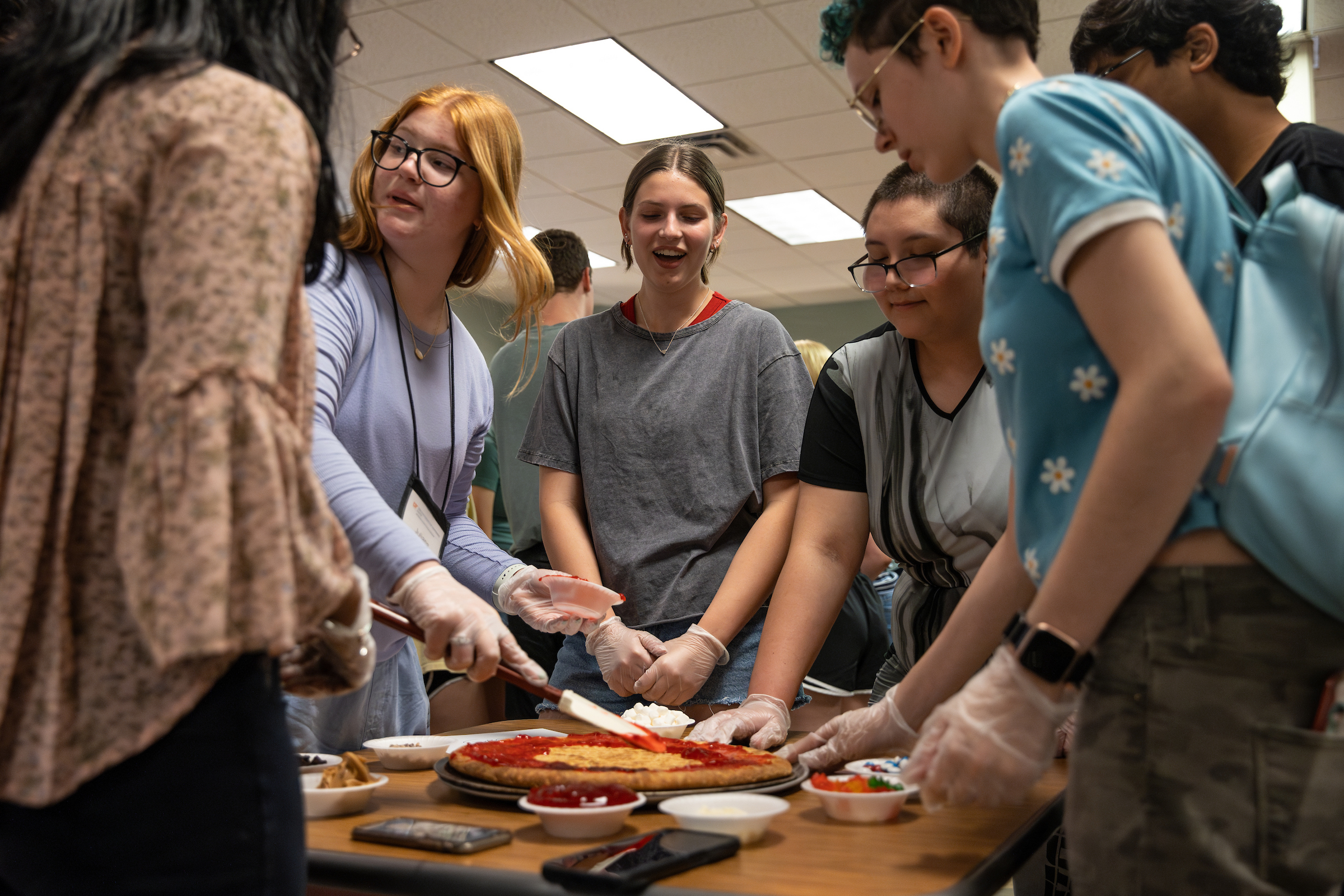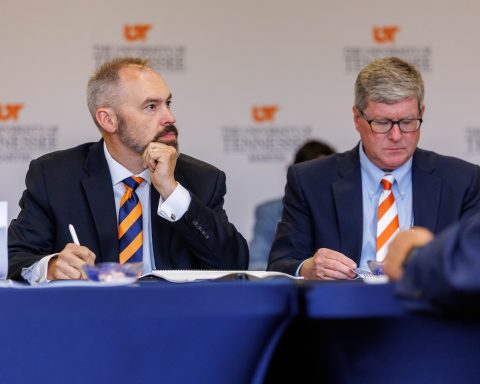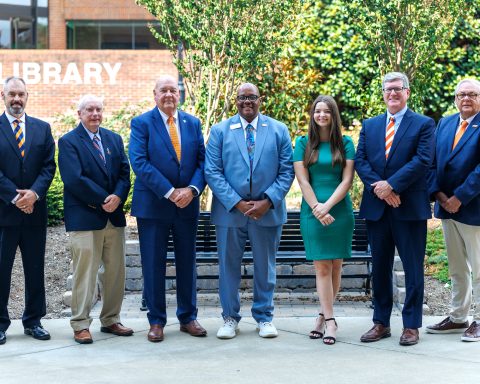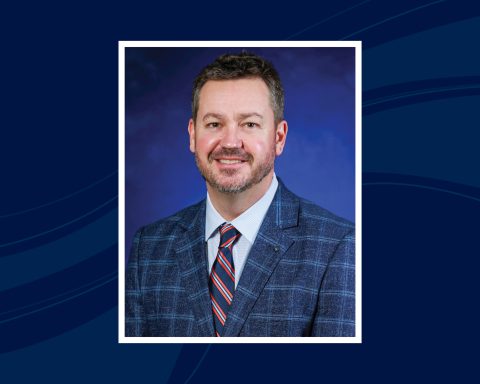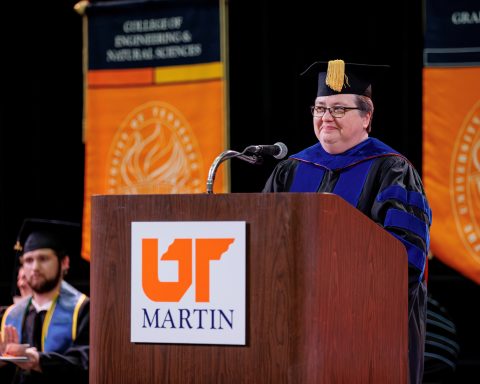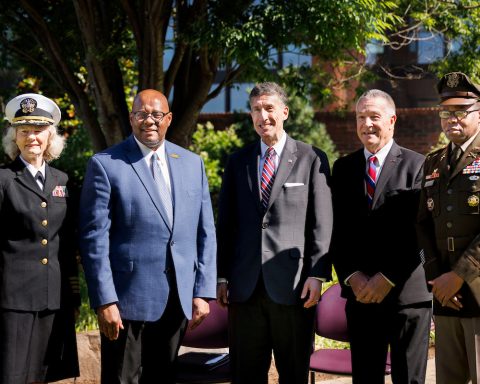A 3% in-state undergraduate tuition increase with no mandatory fee increases for UT Martin students was recommended for the 2025-26 academic year by the UT Martin Advisory Board during the board’s summer meeting May 16 in the Boling University Center. The recommendation now goes to the University of Tennessee Board of Trustees for consideration at the board’s annual meeting June 30-July 1 in Chattanooga. Board members also recommended a UT Martin operating budget of just over $183 million for the new fiscal year.
The full board meeting is archived for viewing at www.utm.edu/advisoryboard.
Petra McPhearson, UT Martin senior vice chancellor for finance and administration, presented the proposed budget, which would mean that undergraduate students will pay an additional $264 per year starting this fall for a total tuition payment of $9,066 for the academic year.
Tuition and existing mandatory fees for full-time, in-state undergraduate students enrolled for 12 or more hours per semester would bring the total cost to $10,824 per academic year. Tuition and current mandatory fees for full-time graduate students would be $11,688 per academic year for an in-state student enrolled for nine or more credit hours.
The proposed increases are needed to provide revenue to cover growth in the costs of providing and maintaining the quality and effectiveness of academic programs, student services and campus infrastructure. The revenue increase primarily will be used for instructional support, student services, scholarships, faculty and staff promotions, fixed-cost increases, and the portion of the 2.6% salary pool not fully funded by state appropriations.
No increases in mandatory fees would result in a net cost increase for undergraduate students of 2.5% and 2.6% for graduate students. McPhearson said that the proposed increases are within the 5.5% maximum recommended by the Tennessee Higher Education Commission.
“So that is a real, real effort by Chancellor (Yancy) Freeman and the senior leadership team to … try to make sure that we have affordable tuition and fees for our students,” she said.
Although no mandatory fee increases are requested, veterinary technology students will pay $1,400 and $350 respectively to cover the Veterinary Technology National Exam cost with financial aid and the rabies vaccination protocol for students in the program.
Students who take dual enrollment courses through the university’s successful Dual Enrollment
Program will be assessed at a reduced, estimated rate of $600.25 per three-credit hour course, which will be fully covered by the Tennessee Dual Enrollment Grant and UT Martin Dual Advantage Scholarship. The Tennessee Student Assistance Corporation (TSAC) will approve the Tennessee Dual Enrollment grant amount in July. Dual enrollment courses allow high school students to earn college-level coursework credit as they complete high school graduation requirements.
In other board reports, Dr. Destin Tucker, assistant vice chancellor for enrollment management, reported positive indicators for reaching the fall 2025 enrollment goal of 7,946 students. This would represent a 5% increase over fall 2024 enrollment of more than 7,500 students and continue the university’s climb toward 10,000 students enrolled at the university in 2030.
The fall 2025 enrollment goal includes 1,281 first-year students, 402 transfer students, 25 international students excluding student athletes, and 179 new graduate students.
Tucker also noted ongoing strong student retention as a contributor to enrollment success, which indicates students who remain enrolled year to year at the university.
In a separate report, Chancellor Yancy Freeman previewed a new dashboard that will track progress toward achieving goals in the newly approved 2025-2030 UT Martin Strategic Plan. Created by the university’s Office of Institutional Research, the completed dashboard will offer updates tied to each goal initiative that can be viewed by the public.
Freeman closed the meeting with updates on several capital projects that are planned or underway. These included the Hall-Moody Administration Building HVAC project scheduled for completion in the first quarter of 2026; selection of a designer for the new $57.5 million College of Business and Global Affairs building; construction beginning late this summer for the $18 million Tennessee Entrepreneurial Science and Technology (TEST) Hub; and design work starting for a new 400-bed student residence facility that will replace Browning Hall.
Freeman also told board members about UT Martin’s new 1+3 agreement with Nashville State Community College that will offer students a streamlined pathway to a Bachelor of Science degree in agricultural business. The partnership was announced, and an agreement was signed May 6 at the Humphreys County Higher Education Center in Waverly. Students will complete one year of coursework at Nashville State, following a set curriculum. They can then transfer to UT Martin, where they are guaranteed admission to pursue a Bachelor of Science in agricultural business.
“We’re not competitors. We are collaborators,” he said of the new relationship. This gives us another opportunity to collaborate with one of our community college partners. …I’m over-the-moon excited to have been able to do that with President Shanna Jackson of Nashville State Community College.”
Freeman also reported key leadership changes, including the hiring of Andrea Yanego as the university’s new director of human resources. She comes to UT Martin from the University of Minnesota.
Retiring from the university are academic deans Dr. Ahmed Tootoonchi, College of Business and Global Affairs, and Cindy West, College of Education, Health, and Behavioral Sciences. Searches will begin for both positions in July. Dr. Joey Mehlhorn, professor of agricultural business and dean of graduate studies, will become interim business and global affairs dean, while West will continue as dean until the position is filled.
Also, Dr. Philip Cavalier, provost and senior vice chancellor for academic affairs, was chosen recently as the new president of Kutztown University in Kutztown, Pennsylvania. Cavalier will begin his new position in July after serving seven years at UT Martin. A transitional provost will be named in June.
Members of the UT Martin Advisory Board are Hal Bynum, Dresden; Chayil Watkins, student representative, Fayette County; Dan Strasser, alumni representative, Chapel Hill; Art Sparks, board chair, Union City; Dr. Dan McDonough, faculty representative, Martin; Stefan Maupin, Dyersburg; Dr. Tonya Reynoldson, Camden; and Dan Strasser, alumni representative, Chapel Hill.
The board approved Somerville, Tennessee, sophomore Darby Self to replace student board member Chayil Watkins whose board term expires in June. The board also honored Johnny Woolfolk of Madison County who also rolled off the board and was succeeded by Stephan Maupin.
The UTM Advisory Board’s next meeting will be Sept. 19, 2025, in Martin.
PHOTO: Chayil Watkins of Fayette County (center), student representative on the UT Martin Advisory Board, participates in the board’s summer meeting Friday, May 16, in the Ed and Carolyn Boling University Center. Board members Dan Strasser (left) of Chapel Hill and Dr. Dan McDonough, UT Martin faculty representative, are also pictured. The full meeting is archived for viewing at www.utm.edu/advisoryboard.

